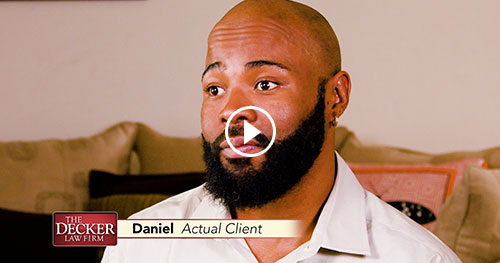Understanding Theft and Grand Larceny: Essential Legal Elements and Defenses
Facing theft and grand larceny charges can be overwhelming, especially considering these are among the most commonly prosecuted crimes in the United States. FBI statistics show over 5.2 million larceny-theft cases annually, making it crucial to understand your rights and legal options. Moreover, the distinction between petty and grand larceny can significantly impact your future, determining whether you face misdemeanor or felony charges.
Essential Elements of Theft and Grand Larceny
To establish theft and grand larceny charges, prosecutors must prove specific legal elements beyond reasonable doubt. Furthermore, understanding these components helps defendants and their attorneys identify potential weaknesses in the prosecution’s case.
Core Legal Requirements
The prosecution must demonstrate four critical elements. First, there must be unlawful taking and carrying, leading, or riding away of property. Second, the property must belong to someone other than the defendant. Third, the taking occurred without the owner’s consent. Finally, the defendant intended to permanently deprive the owner of their property.
Additionally, the FBI’s definition includes various stolen items, ranging from bicycles and electronics to retail merchandise through shoplifting.
Common Types of Theft and Grand Larceny Offenses
Understanding different theft and grand larceny categories helps clarify potential charges and penalties. Consequently, each type carries specific legal implications and defense strategies.
Retail-Related Offenses
Shoplifting represents the most common form, involving theft from retail establishments. However, concealment charges can apply even without leaving the store. Similarly, altering merchandise prices or switching tags constitutes theft under Virginia law.
Financial Crimes and Fraud
Although the FBI doesn’t classify fraud as traditional larceny, it fundamentally involves stealing. These offenses include identity theft, credit card fraud, forgery, and healthcare fraud. Subsequently, the monetary amount determines whether charges become misdemeanors or felonies.
Specialized Theft Categories
Firearm theft automatically qualifies as grand larceny regardless of value due to strict weapons regulations. Likewise, stealing specific animals like horses, cattle, or poultry carries enhanced penalties under Virginia statutes.
Understanding Virginia’s Theft Classifications
Virginia distinguishes between petit and grand larceny based on value thresholds and circumstances. Therefore, understanding these distinctions helps predict potential penalties and defense strategies.
Petit larceny involves property worth $5 or less taken from a person, or any other theft under $1,000. In contrast, grand larceny includes property over $5 taken from a person or any theft exceeding $1,000. Recent legislative changes raised the grand larceny threshold from $500 to $1,000.
Potential Legal Defenses
Several defense strategies can challenge theft and grand larceny charges effectively. However, success depends on specific case circumstances and evidence quality.
Belief of ownership provides a strong defense when defendants honestly believed they had rights to the property. Additionally, duress applies when someone forced the defendant to commit theft through threats or coercion. Entrapment occurs when law enforcement convinces someone to commit crimes they wouldn’t otherwise commit. Finally, consent serves as a defense when property owners gave permission to take items.
Penalties and Legal Consequences
Conviction penalties vary significantly between petit and grand larceny charges. Thus, understanding potential consequences helps defendants make informed decisions about plea agreements and trial strategies.
Petit larceny, classified as a Class 1 misdemeanor, carries up to 12 months in jail and $2,500 in fines. Conversely, grand larceny felony convictions result in 1-20 years imprisonment plus up to $2,500 fines. Enhanced penalties apply for repeat offenses and theft with intent to distribute merchandise.
Why Choose Decker Law for Your Defense
Navigating theft and grand larceny charges requires experienced legal representation to protect your rights and future. At Decker Law, our attorneys understand the complexities of Virginia theft statutes and develop personalized defense strategies for each client.
Don’t let theft charges derail your life. Contact Decker Law today for a free consultation to discuss your case and explore your legal options.












